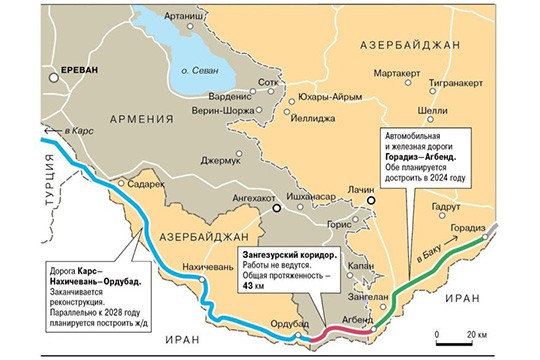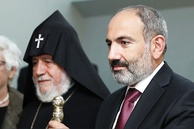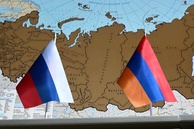On August 8, Washington brokered an agreement between Armenia and Azerbaijan to open a transit corridor through the South Caucasus. This new agreement replaces the initial Zangezur Corridor plan with what is now known as the "Trump Route to International Peace and Prosperity" (TRIPP). Its economic viability remains highly debated though, with some experts (1) arguing that the project would shorten the delivery route between Turkey and Azerbaijan by a total of 343 km, resulting in significant time and cost savings for goods transportation. They also point out that the new route could serve as an alternative one to free up the busy Baku-Tbilisi-Kars (BTK) transport hub, which currently lacks a functional equivalent, and whose recent fivefold capacity increase from 1 million tons to 5 million is still not enough. Western experts emphasize that both routes could complement each other, leading to expanded regional logistical capabilities and increased external demand for transit services. Conversely, some domestic experts (2) describe the Zangezur Corridor's economic significance as negligible since the existing well-established transport corridors from Azerbaijan to Turkey via Georgia already handle a significant portion of the South Caucasus' logistics. What experts from various countries unanimously agree on, however, is that this project will not become a route of "peace and prosperity."
Notably, in June of this year, Carnegie Endowment experts (3), citing sources in the US State Department, reported that as part of its goal to resolve conflicts worldwide, the Trump administration had drawn up its own plan to address the Armenian-Azerbaijani issue. While being generally similar to EU proposals, it is based on current American logic: to ensure the agreement's sustainability through the direct involvement of American businesses. The plan’s authors had two options in mind: inviting Ilham Aliyev to the White House to persuade Baku to abandon demands that run counter to the Armenian constitution (amendments to provisions concerning "reunification" with Nagorno-Karabakh) to ensure a peace deal, or pressuring Yerevan to accept a US model of control over the Armenian section of the route in exchange for specific benefits. There were also hints that this could help Donald Trump win the Nobel Peace Prize.
That said, some publications (4) emphasize that this plan was actually developed under the previous US President, Joe Biden. According to these reports, the plan already excluded Russia's participation and envisioned handing control of the corridor over to a US commercial logistics company. Indeed, while just a year ago, a European proposal was discussed, where both operational functions and security of potential communications were to be handled by EU legal entities (specifically, the European Border and Coastguard Agency Frontex (5) was mentioned as a candidate), now it looks highly likely that US entities will take on these functions. Regardless of their status, this de facto means a key NATO country’s military presence in Russia and Iran's underbelly. It is by no means coincidental that joint US-Armenian military exercises codenamed Eagle Partner have been held in Armenia since 2023, officially designated as “preparations for peacekeeping missions." According to open-source information (6), this year’s exercises have taken on a special scale, and the scope of combat training has expanded.
Armenia itself is becoming increasingly drawn into Washington's sphere of influence. In 2022, six months after the start of the war in Ukraine, a US publication titled The US should back Armenia's prime minister in his attempt to resist Russia emphasized the need to "strongly encourage a peace agreement with Azerbaijan and simultaneous rapprochement with Turkey – even if it is achieved at the cost of concessions. Only then, in the long term, will Armenia be able to break free from Russia's orbit." (7) Russian diplomats note that Armenia was expected to make concessions not only because of its defeat in the war, but also because the Western coalition needs Azerbaijani gas and weakening Russia in the region objectively strengthens Baku's position. (8)
According to the US news website Axios, (9) in exchange for agreeing to TRIPP's operation under American conditions, Washington promised Armenia security guarantees against potential aggression from Azerbaijan and expects Baku to join the Abraham Accords. Earlier, we wrote (10) about the formation of the so-called "small Middle Eastern triangle" of Turkey-Azerbaijan-Israel. If this becomes a reality, it would only confirm our previous thoughts that events in the Middle East and South Caucasus are closely interconnected. With Azerbaijan supplying 50 percent of Israel's oil needs, and Israel in return accounting for up to 70 percent of Baku’s arms imports, some anonymous sources in journalistic investigations have hinted that Israel provides technical and advisory support to Azerbaijani state security structures, including the Presidential Security Service, supplying Baku with software used for military purposes, and sending in political consultants and political technologists to fine-tune the country’s media and image-building policy. In this context, the issue of the Zangezur Corridor acquires a whole new light, bringing Tel Aviv's interests to the geopolitical arena, which undoubtedly causes serious concern in Iran.
Meanwhile, Turkey, Azerbaijan's main ally in the region, is building its own, even more complex, contact geometry. The generally accepted argument in favor of the Zangezur Corridor – that it can contribute to the development of not only telecommunication networks and other infrastructure projects, but also of energy pipelines in the Central Asia-South Caucasus-Middle East chain – fits well into the Azerbaijan-Turkey-Syria-Egypt-Israel system of connections. This is what some Western think tanks openly write about, (11) suggesting that with the start of Azerbaijani gas supplies to Syria, the latter could ultimately become a transit country for Israeli and Egyptian supplies heading to Turkey and Europe. Therefore, if, at the end of the day, alternative hydrocarbon routes via the "Trump route" become real, this would lead to a serious transformation of the entire configuration of logistical routes. Against this backdrop, Turkish Foreign Minister Hakan Fidan’s visit to Egypt and the talks between President Recep Tayyip Erdogan and his Georgian counterpart Salome Zourabichvili in Ankara, which, among other things, addressed economic and transport cooperation, look far from coincidental.
Thus, the new route in the South Caucasus is fraught with many political symbols. Some may see it as a connecting thread that could contribute to the region's economic development, while others – as a bare-knuckles geopolitical project aimed at displacing Russia and Iran from a nodal center of Eurasia. This is something both Moscow and Tehran understand all too well.
--------------------------------------------------------------------------
https://carnegieendowment.org/russia-eurasia/politika/2025/06/armenia-turkiye-rapprochement?lang=ru
https://interaffairs.ru/jauthor/material/3132
https://jam-news.net/armenia-us-drills-are-more-political-than-defensive-says-analyst/
https://www.bostonherald.com/2022/05/19/bhr-l-armenia-oped-0519/
https://interaffairs.ru/jauthor/material/3132
https://www.axios.com/2025/08/07/armenia-azerbaijan-agreement-trump-corridor
https://interaffairs.ru/news/show/51976
read more in our Telegram-channel https://t.me/The_International_Affairs

 12:26 15.08.2025 •
12:26 15.08.2025 •



























